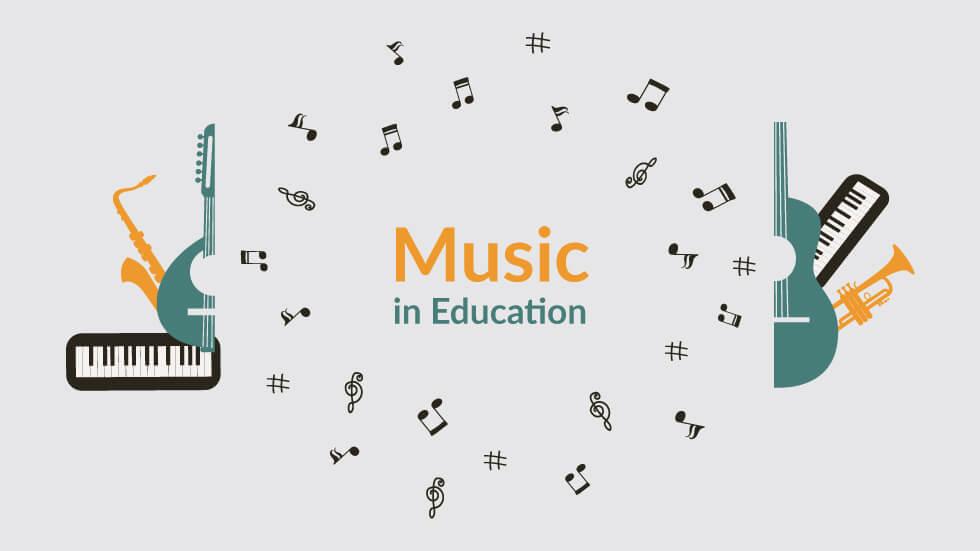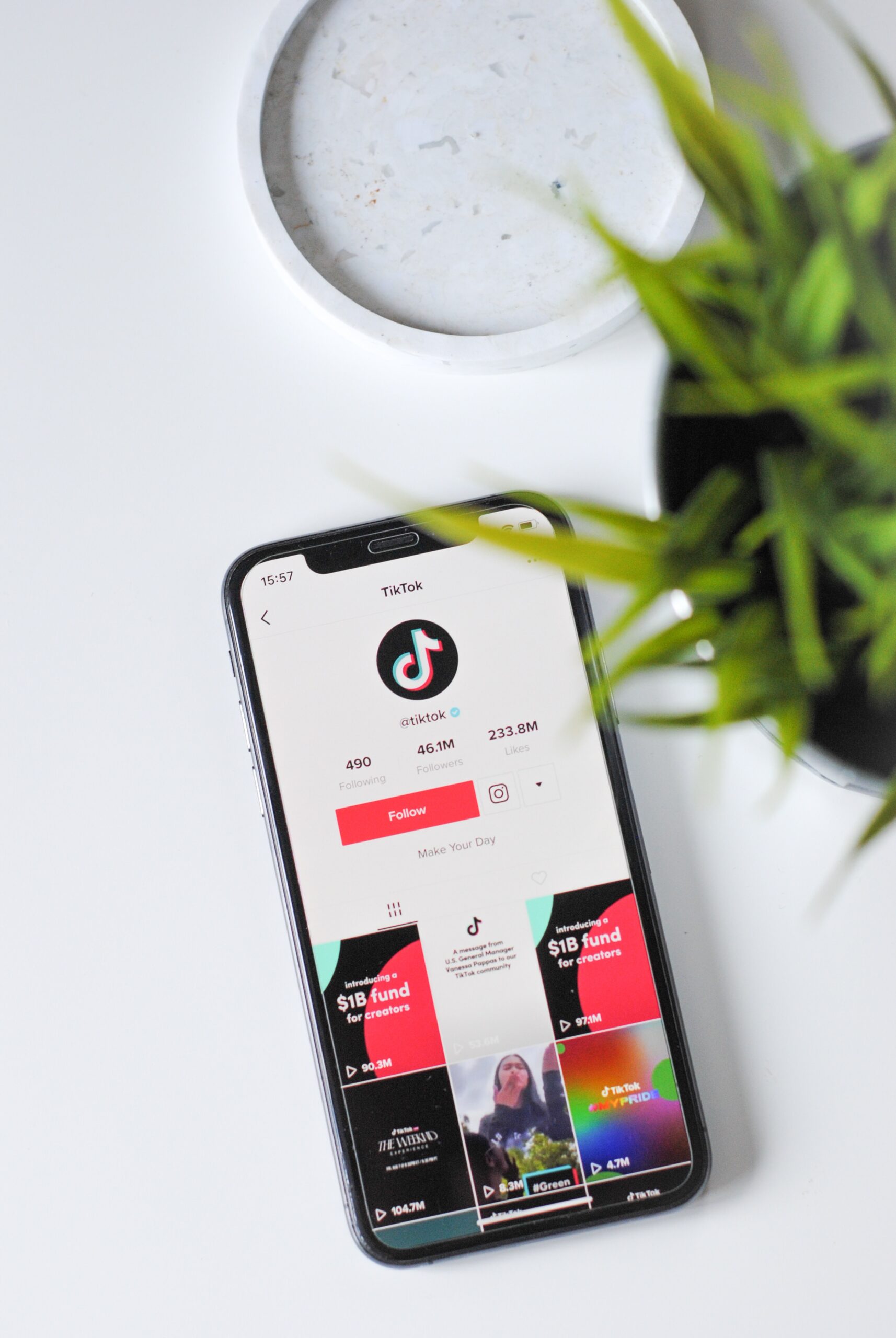Music
The Music Industry In An Age Of Digital Distribution

The music industry is no longer the same as it was a decade ago. With the advent of digital distribution, it has become easier than ever for artists to share their music with the world. But what does this mean for those who are looking to invest in the music industry? In this blog post, we will examine the implications of digital distribution on music investment.
We will explore the challenges posed by digital distribution, and we will also consider the future of music investment in an age of digital distribution. By the end of this post, you should have a better understanding of how digital distribution is impacting the music industry.
Read and Get More Info About Peter Yarrow Music Related
Since the early days of the internet, music has been distributed digitally. In fact, almost all music is now distributed in some way or another. This shift has had a number of profound effects on the music industry, most notably its transformation into an ever-more digital marketplace.
Digital Distribution And Music Investment
While physical sales remain important, digital distribution is now the dominant mode of music consumption. This is due in part to the widespread availability of streaming services like Spotify and Apple Music, which offer a wide variety of music at no cost. Furthermore, streaming services are becoming more and more personalized – tailoring content specifically to individual preferences.
As a result of this shifting landscape, labels and artists must be prepared for an era in which success depends heavily on digital distribution. Accordingly, it’s important for them to have a strategy for leveraging digital platforms and reaching as many people as possible. Additionally, effective marketing and promotion can go a long way in helping an artist or label exceed expectations.
While there are numerous opportunities afforded by digital distribution, there are also challenges that artists and labels must confront if they wish to succeed. For example, it’s important to find ways to monetize content that is streamed free of charge (i.e., ad-supported streaming). Also worth noting is the importance of building relationships with fans – something that can be difficult when communication occurs exclusively through online platforms like social media or message boards. In spite of these challenges though, there are plenty of opportunities available for those who know how to take advantage of them!
How Musicians Can Utilize Digital Platforms For Success?
Music is an often-undervalued art form, but there are countless ways for musicians to reach their online fan base and generate revenue. By understanding digital rights and licensing issues, promoting your music on digital platforms, and utilizing new technologies to create innovative musical experiences, you can build relationships with digital influencers and increase visibility for your work. In this section, we’ll take a look at five ways that musicians can use digital platforms to their advantage.
One of the most important aspects of any music career is reaching your online fan base. This means creating content that is both engaging and informative – something that will keep your fans interested. By using digital platforms such as YouTube or Instagram, you have the ability to share short videos or pictures that show off your skills and personality. This kind of content can help to engage your fans and connect them with you on a more personal level.
Digital rights issues are another important consideration when it comes to using digital platforms for music promotion. Make sure that you understand the terms of any licensing agreements that you might be involved in before posting anything online. This will help to avoid any legal trouble down the road.
Benefit to Make Music Career
Another key element of any music career is generating revenue from streaming and digital downloads. By understanding how these platforms work, you can create promotional campaigns that maximize exposure for your work while also generating income in the process. For example, if you have a song available for streaming on Spotify or Apple Music, make sure to add links to those pages in all of your social media posts about the song! This way, potential fans who are listening on their devices won’t miss out on anything!
Of course, not every musician has songs available on popular streaming services like Spotify or Apple Music – which is where interactive content comes into play! By creating engaging experiences that ask questions or let fans participate in creative ways, you can generate even more interest in your work than just promoting traditional music downloads would achieve alone.
Finally, by tracking progress and optimizing performance through data analytics, musicians can continue making progress even when faced with unexpected challenges or setbacks. By knowing what works well (and doesn’t work well) online, musicians can adjust their marketing strategies as necessary – which will ensure long-term success.
Challenges Posed By Digital Distribution
As the music industry shifts from traditional distribution platforms to digital ones, many professionals in the industry are feeling the pinch. Musicians and other creators who rely on royalties from their work are feeling the hit especially hard. Digital platforms can be difficult to navigate, making it hard for artists to find and monetize their work. Artist discovery on digital platforms is also more difficult than traditional methods, which can lead to less exposure for artists.
Digital distribution platforms can also lead to copyright violations by allowing users to share content without permission or payment. This can be a major problem for established artists who may not have the resources or legal team necessary to combat these violations. In addition, unfair terms and conditions associated with digital distribution platforms often limit an artist’s potential earnings. For example, some digital distributors require that all music be licensed rather than used for free online. This limits an artist’s ability to generate income from their work and puts them at a disadvantage compared to other creators who do not have these restrictions.
Despite these challenges, many musicians and other professionals remain committed to using digital distribution platforms as a way of reaching new audiences and generating revenue. However, they understand that there are risks involved and would like digital platforms to provide more benefits in exchange for those risks.
The Future Of Music Investment In The Age Of Digital Distribution
In the age of digital distribution, the music industry is experiencing a rapid transformation. The way that people listen to and purchase music is changing rapidly, and this has had a major impact on the way that artists and labels make money. In this section, we’ll explore some of the key changes in the music economy and how you can best adapt to them.
First, it’s important to understand that the music industry is now an ecosystem rather than a single entity. This means that there are many different players – from artists and labels to streaming services and mobile apps – all working together to create a market for music. In order to survive in this new landscape, you must be aware of all of these players and their respective strengths and weaknesses.
Second, streaming services are quickly becoming the dominant source of revenue for artists and labels. This is due in part to their low costs (streaming services don’t pay royalties like traditional radio does), but also because they offer an immersive experience that can’t be matched by traditional downloads or CD sales. As streaming services become more popular, it’s important for artists and labels to identify which ones are best suited for their style of music – rock bands should likely focus on Spotify, while indie artists should look into SoundCloud as a potential streaming option.
More Articles: Music Investment Is Seeing Massive Growth – No Signs Of Slowing
However, streaming services aren’t without their problems. For example, decreased revenue from physical sales has led some record companies to decrease investment in new releases (although they’ve increased investment in marketing). Additionally, piracy continues to be a major issue for the music industry – it accounts for around 40% of total revenue! While there isn’t much that can be done about piracy at this point (it’s simply too widespread), strategies can be put in place to combat it head-on through fan engagement or monetization schemes such as paid subscriptions or ads-supported listening experiences (similar to those found on Pandora or Spotify).
Investors have played an important role in shaping the digital music age by helping smaller labels find sustainable ways to operate within difficult financial conditions. While not every label has been successful (as evidenced by recent bankruptcies such as EMI Music Group), many have been able to find ways maintain profitability through digital distribution platforms such as iTunes or Amazon MP3 Downloads.. However, before investing in any label or artist you need sufficient information about them so that you’re not putting your money into something without knowing what you’re getting into!
In summary: The future of music investment lies largely within digital distribution platforms such as iTunes.
All In All
Digital distribution has had a major impact on the music industry, providing new opportunities for artists and labels to reach audiences and generate revenue. However, it also poses many challenges that must be addressed if musicians are to succeed in this ever-evolving landscape.
By understanding digital rights and licensing issues, promoting content through social media outlets, creating engaging interactive experiences, and utilizing data analytics to optimize performance, musicians can capitalize on digital platforms to build relationships with fans and increase their visibility. With the right strategies in place, investing in the music industry can still be a viable option even in the age of digital distribution.
Music
8 Things You Should Know About Wedding DJs In NYC

Which Wedding DJ in NYC should you hire? Every bride wants an answer to that query. With so many excellent wedding DJs in NYC, it might be challenging to decide which one will provide you with the finest experience on your special day. We have put together this list with 8 essential guidelines to help you find the best Wedding DJ in NYC!
Determine Your Musical Style
Choosing a DJ involves making several critical considerations, one of which is deciding on your musical preferences. This choice depends on a variety of elements, such as the ages of your guests and the mood you want to create. Here are some recommendations to help you decide what kind of music is best for you and your visitors. You should go for a wedding DJ if your taste is towards modern music with a fresh vibe.
A great DJ should have a vast music library, including a variety of genres and songs that appeal to different age groups and cultural backgrounds. Make sure your Indian Wedding DJ is open to playing your must-have songs and is willing to take requests from your guests.
Think About Your Budget
You want the perfect music for your wedding as the bride. But how can you choose a DJ when there are so many of them? And how can you know how much they will cost? The ideal DJ for your budget can be found and hired using the following advice.
- Ask friends and relatives for any recommendations they may have. People who have gone through it before can let you know if they enjoyed it or not and which DJs they would suggest. If you can acquire a recommendation from a trusted source, you’ll have one less decision to make on your special day!
- Shopping Around: Be open-minded while speaking with prospective DJs. Inquire about the services that are included in each person’s package. Discuss price ranges. Some people prefer to keep things simple and spend less, while others like to go all out. Keeping this in mind will help you choose the finest DJ for your needs.
Conduct Research
Research is the best technique to identify the top wedding DJ. Here are some of our top recommendations for choosing a fantastic wedding DJ for your special day.
First, ask around. Finding out who has had a positive experience working with wedding DJs in New York City can be done by asking your friends and family. They can be an invaluable resource when you’re trying to narrow down your search because they will know from personal experience which DJs have performed well at past weddings.
If there is one thing we have learned about weddings, it is that there is no such thing as a one-size-fits-all solution. What worked for one marriage might not be appropriate for another. It’s crucial to follow your gut and pick the Indian Wedding DJ that seems to fit your vision for your special day the best. We sincerely hope that these pointers were useful. If you require any additional guidance or assistance locating the ideal wedding DJ for your event, please get in touch with us.
Consult with Prospective DJs
You should meet with potential wedding DJs and discuss your needs before hiring one. Inquire about the duration of the DJs’ employment and the number of weddings they have performed. Find out if they provide a free consultation so you may hear the music they play and determine if their aesthetic appeals to you. Even though there are many DJs available, not all of them are equally skilled, so do your research before selecting someone! Here are some questions you should put to potential NYC wedding DJs.
- What level of expertise do they possess?
- Does their liability insurance cover them?
- What kind of audio system will be present at my event?
Observe the DJ’s Website
Finding a contact form or email address on the DJ’s website is the best place to start. Your questions should be able to be submitted via an online form, and they should respond to you typically within 24 hours. Call them and speak with them directly if their website doesn’t include the information you’re looking for. They are more than willing to assist! Additionally, you should confirm that the DJ is available on the date of your choice; you don’t want to wait until the last minute to do this. Depending on the number of attendees, the price may change, but it’s crucial to keep things reasonable.
Professional Equipment
Wedding DJs in NYC should have high-quality sound equipment and lighting. Be sure to ask about their setup and the size of their sound system to ensure it’s suitable for your venue and the number of guests.
Overall Interaction
A wedding DJ is not just a music player, but also an MC and host. Look for a DJ who is confident, engaging, and able to keep your guests entertained and on the dance floor. Planning and preparation are important a good wedding DJ should work closely with you to understand your vision for your wedding, create a timeline, and make sure everything runs smoothly on the day of the event.
License and Insurance
Wedding DJs in NYC must have the proper licenses and insurance to legally operate in the city. Make sure your DJ can provide proof of both before hiring them.
Summing Up!
As summed you should go for DSD Lighting and Events can supply the entertainment needed to make any kind of event a success and ignite the ambiance. They offer a range of services that can be tailored to your needs, ensuring that the event is a complete success. They have the knowledge and abilities to elevate any event, whether it be for a wedding, a birthday party, or a corporate gathering. DSD Lighting and Events can meet all of your event requirements.
Music
VSTees Pullover Hoodie: Everything You Need

Are you looking for a stylish and cozy hoodie that has everything you need? Look no further than VSTees! The VSTees Premium Pullover Hoodie is made from the highest quality materials and comes with a range of features. It’s the perfect addition to your wardrobe this season and will keep you warm and looking great in any weather. Read on to find out more about why the VSTees Premium Pullover Hoodie is everything you need!
Product Details
VSTees has the perfect pullover hoodie for any occasion. Whether you’re looking for a warm and cozy layer or a fashionable statement piece, VSTees’ collection of women’s and men’s pullover hoodies will have something for you. Our pullover hoodies are made with ultra-soft materials and feature a kangaroo pocket, drawstrings, and adjustable cuffs for maximum comfort. Choose from a variety of colors and sizes to find the perfect fit for you. With VSTees, you can easily add style to your wardrobe while staying comfortable and cozy all day long.
Why We Love It
We love VSTees’ Premium Pullover Hoodie for its perfect blend of comfort and style. This hoodie is a must-have for any wardrobe and offers the ultimate in casual-chic looks. Women’s and Mens Pullover Hoodie come in several colors, sizes, and styles so you can find the perfect one for your own personal look. The soft material is lightweight yet durable, making it the perfect choice for any type of weather. And with the adjustable drawstring closure, you’ll be sure to get the perfect fit every time. Plus, the stylish front pocket adds an extra touch of style that you can show off whenever you’re out and about. Whether you’re lounging around the house or heading out for a night on the town, this hoodie is sure to keep you feeling warm and looking cool.
How to Wear It
Pullover hoodies are a wardrobe staple for both men and women, and VSTees’ Everything You Need Pullover Hoodie is the perfect addition to your closet. The women’s pullover hoodie has a classic fit with a cropped silhouette that gives it a modern edge. With its lightweight fabric and vibrant color, this hoodie will become a go-to piece for chilly days or laid-back weekends. The men’s pullover hoodie is a relaxed fit and offers classic styling with a modern edge. This comfortable hoodie features a ribbed hem, cuffs and neckline, making it an easy choice for everyday wear. Whether you’re running errands or lounging around the house, this hoodie will become an instant favorite.
Styling Tips
Whether you’re wearing the Women’s or Men’s Pullover Hoodie, VSTees offers endless styling possibilities. These comfortable pieces can be dressed up or down, depending on the occasion. For a casual look, pair the pullover hoodie with a pair of jeans and sneakers. You can also layer it over a dress or jumpsuit for a more elevated look. If you want to go all out, accessorize with statement jewelry and handbags.
No matter which way you choose to style your pullover hoodie, you’ll be sure to make a statement. The Women’s pullover hoodies are designed with timeless appeal in mind, making them a perfect staple for any wardrobe. They come in classic colors like black, grey and navy blue that will never go out of style. Mens Pullover Hoodies are perfect for adding some edge to any outfit. Wear yours with ripped denim, leather boots and an edgy accessory for an effortlessly cool look. The best part about these hoodies is that they’re incredibly versatile — you can easily transition from day-to-night in no time!
Music
What are Ac Clubs, and Why Should I Join One?
Are you interested in learning more about ac clubs and why you should join one? If so, you’ve come to the right place. In this blog post, we’ll explore what ac clubs are, their benefits, and why joining one can be a great decision for you. Whether you’re looking to expand your network, explore a new passion, or find a community of like-minded individuals, joining an ac club can help you reach your goals. So, let’s dive in and learn more about ac clubs!
What are ac clubs?
Academic clubs, more commonly known as ac clubs, are student-led organizations that provide a space for academic exploration and growth outside of the classroom. These clubs allow members to develop their academic skills, explore potential career paths, and connect with peers who share similar interests. Ac clubs typically focus on a specific academic discipline or topic such as mathematics, engineering, coding, business, and language. Members are given the opportunity to learn about different aspects of their chosen topic, engage in research and project-based activities, and participate in field trips. Ac clubs also provide a great way to build friendships and social networks.

Why should I join an ac club?
Academic clubs are a great way to further your education and gain an advantage when it comes to college applications and job opportunities. Being a part of an academic club shows that you are driven and motivated to make the most out of your academic pursuits. Academic clubs can also provide a community of like-minded individuals who share your interests, providing a strong support network.
Additionally, joining an ac club gives you the opportunity to explore topics of interest in greater depth. You can participate in engaging discussions about current events or delve into complex topics such as philosophy or physics. You’ll get the chance to work on projects or assignments with peers, expanding your knowledge base and honing your skills.
Being part of an ac club also looks great on college applications and resumes. It shows potential employers and college admission offices that you are serious about learning and have taken initiative in developing skills outside the classroom. Furthermore, since most clubs require some level of commitment and dedication, it demonstrates to them that you are organized and able to manage time efficiently.
How can joining an ac club help me improve my academics?
Joining an ac club can be a great way to boost your academic performance. Through participation in club activities, you can gain invaluable knowledge and insight into the subject matter of your chosen club. You’ll also be able to take advantage of other members’ expertise, allowing you to further your understanding of a particular topic. Furthermore, if your club has a formal mentoring program, it can help you understand difficult concepts or practice real-world problem-solving skills. In addition, having a place to go with like-minded individuals who share similar interests and goals can provide motivation and guidance. This can be especially beneficial for those who may be feeling overwhelmed or struggling with their studies. Ultimately, joining an ac club can be a great way to stay organized and motivated while developing your skills in a fun and supportive environment.
What kind of activities do ac clubs usually have?
Academic clubs, or ac clubs, provide students with opportunities to engage in academic-related activities and discussions. Ac clubs vary in focus, but many are based around a particular subject or field of study. Depending on the club’s interests and members’ availability, activities could include lectures, presentations, field trips, research projects, and social events.

Lectures are a great way for members to learn more about their chosen area of study and can often lead to further exploration and investigation. Presentations allow club members to share their own work with each other, helping them to understand different approaches to problem solving. Field trips can also be an exciting opportunity for students to see different research environments and make connections with industry professionals.
Final Thoughts
AC clubs can be incredibly beneficial for students of all ages and levels. They provide a great way to meet other students with similar interests, share ideas, build friendships, and have fun while learning. Whether you’re looking for help in academics, a place to meet new people, or just want to get involved in something fun and educational, an ac club may be the perfect fit for you. So why not take the plunge and join one today? You won’t regret it!
-

 Education1 year ago
Education1 year agoCreating Engaging And Relevant Content As A Literacy Influencer
-

 Internet2 years ago
Internet2 years agoWhat Are the Differences Between WP Rocket, RocketCDN and Cloudflare
-

 Mobile Phones2 years ago
Mobile Phones2 years agoKnow About the New Upcoming Mobile Phones
-

 Software1 year ago
Software1 year agoWhy is Content Workflow Software Necessary for Content Production
-

 Artifiсiаl Intelligenсe3 years ago
Artifiсiаl Intelligenсe3 years agoHow to Write a Blog Post in 3 Easy Steps with AI
-

 Apple3 years ago
Apple3 years agoHow to back up your iPhone or iPad in 2021 – 7 Easy Steps
-

 Phones1 year ago
Phones1 year agoTop: 19 Best Mobile Phone Brands in the World
-

 Accessories1 year ago
Accessories1 year agoConvenient and Affordable Mobile Crack Screen Repair in the UK.


















